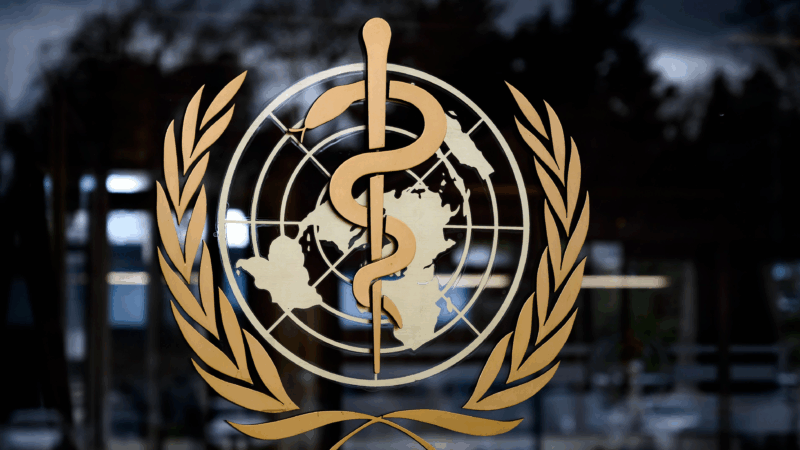Colon cancer survivors who exercise regularly live longer
Colon cancer is one of the leading causes of cancer-related death worldwide, and it’s on the rise among younger adults in the U.S. But research recently published in the journal Cancer, finds regular exercise can help survivors live longer — in some cases, even longer than people who’ve never had colon cancer.
“I think the important message is, some level of activity is better than staying inactive,” says Dr. Jeff Meyerhardt, co-director of the Colon and Rectal Cancer Center at Dana-Farber Cancer Institute and the study’s senior author. He says the results suggest exercise can have a “meaningful impact” on a patient’s long-term prognosis.
When it comes to colon cancer, the good news is that overall, death rates have been falling thanks to improvements in screening and treatment. But survivors still tend to have a shorter life expectancy than people of the same age and sex in the general population, in large part because of the risk that the cancer will come back.
Meyerhardt says researchers have long known that exercise can improve survival rates in colon cancer patients. But he and his colleagues wanted to know if regular physical activity could actually help patients improve their survival rates compared to people who’d never had cancer.
So they surveyed nearly 3,000 colon cancer patients about their exercise habits before and after treatment. What they found was that, for patients who were three years out from treatment and cancer free, regular exercise made a big difference.
“Those patients not only had a better overall survival if they were more physically active, they actually looked like they had a slightly better overall survival compared to the general population,” Meyerhardt says.
Even patients whose cancer recurred had improvements in survival if they had more regular exercise compared to patients who were the least physically active.
Patients who saw benefits were exercising the equivalent of walking about an hour a day at a 2-to-3 mile per hour pace about six days a week, he says.
Kathryn Schmitz is an exercise oncology researcher at the University of Pittsburgh and the director of the Moving Through Cancer Program at UPMC Hillman Cancer Center. She’s a firm believer in the power of exercise both to reduce the risk of dying from colon cancer and to prevent it in the first place.
“I know of nothing else that is within the patient’s control that is more powerful for reducing cancer mortality, particularly colon cancer mortality, than physical activity,” Schmitz says.
Researchers are still trying to figure out the mechanisms at play. But Schmitz says evidence from animal models suggests that physical activity triggers a series of chemical reactions in cells that promote health in multiple ways.
“What you might think of is that all of our cells are bathed in a soup of sorts, and the constituents of that soup change as a result of being more physically active,” Schmitz says.
When you’re sedentary, your immune system doesn’t work as well, and your cells are more prone to inflammation, which can cause cells to mutate, she says. But when you exercise on a regular basis, your inflammation goes down and your immune function is better.
“The soup in which your cells are bathed is healthier in a way that will tamp down any cancer development or cancer progression,” she says.
Exercise can also improve insulin sensitivity, and insulin plays a role in spurring the growth of colorectal cancer cells, says Dr. Kimmie Ng, founding director of the Young Onset Colorectal Cancer Center at Dana-Farber.
And at a time when colon and rectal cancer rates are rising among people under 50, it’s more important than ever to get the word out about exercise.
Ng says researchers don’t know exactly what’s driving the “alarming” rise in cancers of the colon and rectum in adults under 50, but research suggests colorectal cancer is strongly linked to several modifiable lifestyle factors like diet and physical activity.
Out of all these factors, Ng says, “exercise probably has some of the strongest data supporting the benefits of it being protective” — both in terms of developing colorectal cancer and surviving it. And while exercise is beneficial at any age, the younger you start the better.
“We do think that exercise, starting in childhood and adolescence, also seems to be very important for protecting against a future risk of developing colorectal cancer as an adult,” Ng says.
Guidelines from the American Cancer Society recommend people get 150 minutes of moderate-intensity physical activity each week to reduce the risk of cancer. But if that seems like more exercise than you have the time or energy for, something is always better than nothing, Schmitz says.
“If you are able to do 90 minutes more than you’re currently doing, then that is a win,” Schmitz says. “If you’re able to do 60 minutes more than what you’re currently doing, that is a win. Do not let the perfect be the enemy of the good. Getting off the couch to begin with is a win.”
Edited by Jane Greenhalgh
The divorce between the U.S. and WHO is final this week. Or is it?
The U.S. is the only country allowed to withdraw from the World Health Organization. And Jan. 22 is the day when Trump's pullout announcement should go into effect. But ... it's complicated.
Trump’s Board of Peace has several invited leaders trying to figure out how it’ll work
It's unclear how many leaders have been asked to join the board, and the large number of invitations being sent out, including to countries that don't get along, has raised questions about the board's mandate and decision-making processes.
Researchers find Antarctic penguin breeding is heating up sooner
Warming temperatures are forcing Antarctic penguins to breed earlier and that's a big problem for two of the cute tuxedoed species that face extinction by the end of the century, a study said.
As Trump dismantles the existing world order, his version is still taking shape
In his second term, the president is embracing a foreign policy that breaks sharply from U.S. tradition. Both supporters and critics say he's upending a global system in place for 80 years.
Polyester clothing has been causing a stir online. But how valid are the concerns?
There has been a lot of conversation on social media about the downsides of polyester. But are those downsides as bad as they're believed to be? Are there upsides?
Trump promised to cut energy bills in half. One year later, has he delivered?
Cheap gasoline, yes. Drill, baby, drill? Not so much. And electricity bills are going up, not down.








